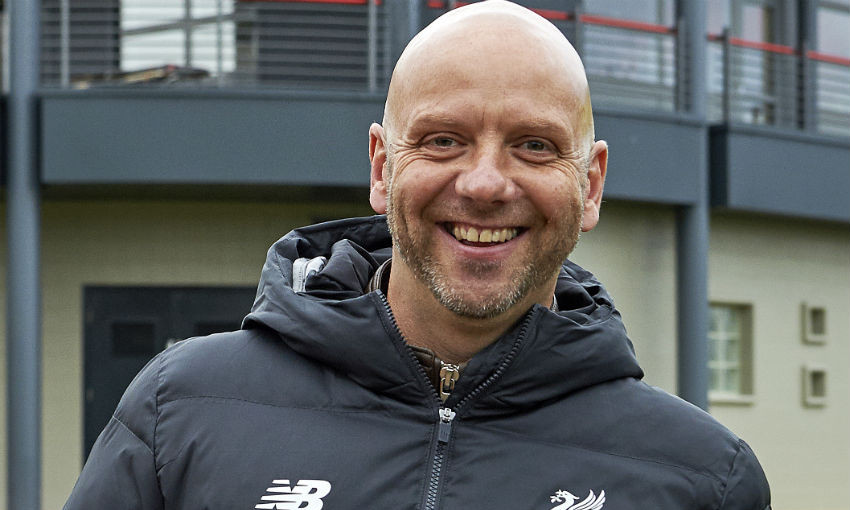Behind the Badge: From full-back to mentor - Rob Jones' LFC story
Rob Jones has been there and done it.
The highs of making hundreds of appearances for Liverpool’s first team and representing your country at senior international level?
Been there, done that.
The lows of facing persistent injuries that first hamper, then cut short, your elite playing career?
Been there, done that, too.
Indeed, it is those experiences that make Jones an invaluable presence at Liverpool’s Academy where, since 2013, he has helped the youngsters who aspire to emulate his achievements on the pitch.
“I am here to support, mentor and guide the players alongside the coaches as they cope with the demands of becoming a football player,” Jones informs Liverpoolfc.com during a wide-ranging chat at the club’s Kirkby youth base recently.
“It’s a holistic approach, on the pitch and off the pitch, the highs and the lows. My role is to help the boy in becoming a man as well as a footballer.”
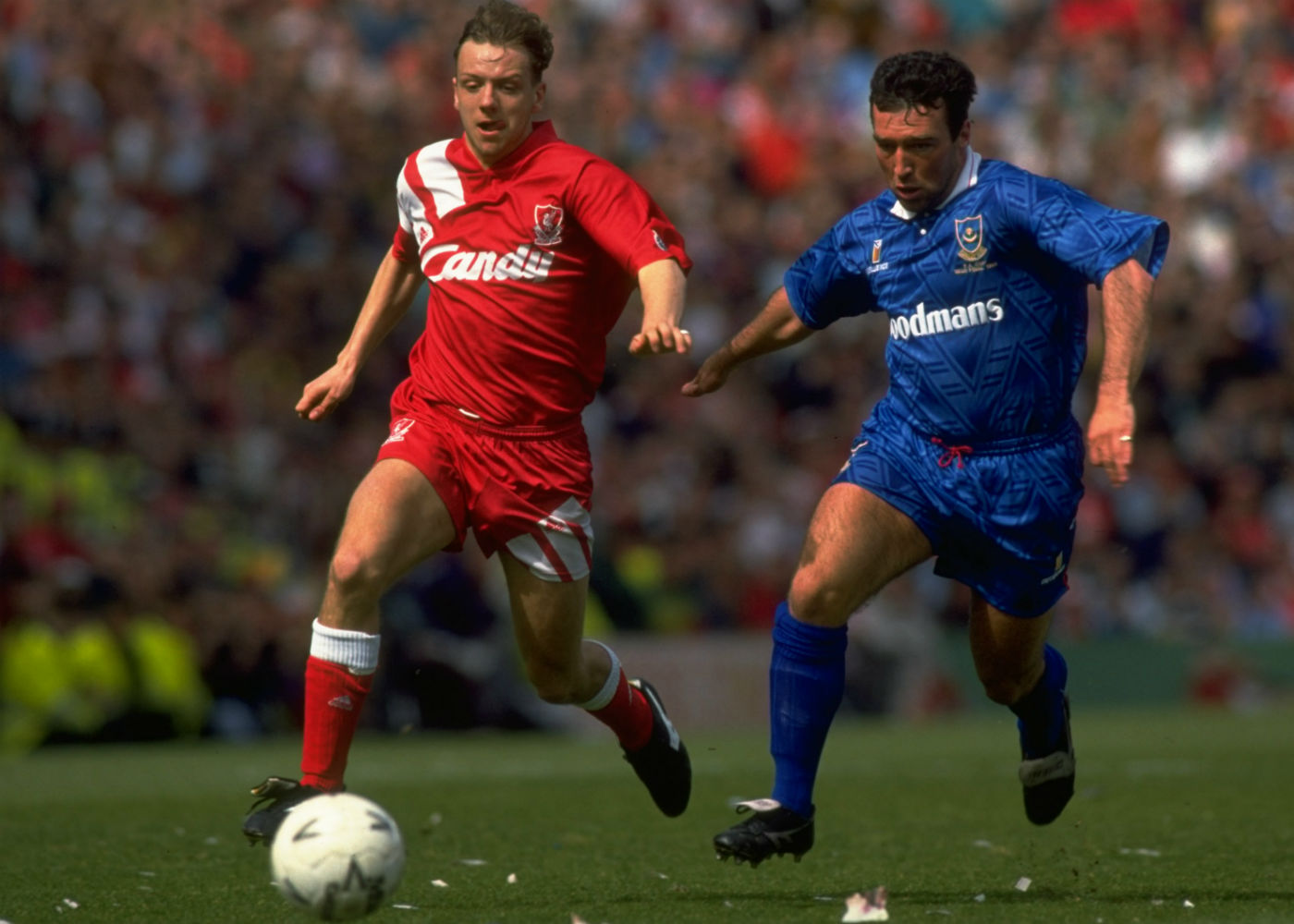
For much of the 1990s, Jones was a first-choice, first-team player at Anfield; a versatile full-back who played 243 times for the Reds and won eight England caps after arriving from Crewe Alexandra, despite being forced into retirement at the age of just 28.
A welcome return to the club he loves was brought about by Brendan Rodgers, with the former manager also inviting Robbie Fowler and Steve McManaman to share their expertise at the Academy around seven years ago.
“Brendan contacted me and said that around the Academy there’s no ex-players at all. There are great coaches but who have sometimes never experienced playing or ‘The Liverpool Way’ and stuff like that so he asked if I would be interested in coming back,” Jones recalls.
“He was very casual about it and said ‘give it a go’ so I came in and met Alex [Inglethorpe], who was brilliant then and still is now. Myself, Macca and Robbie came but obviously Robbie had more commitments and he’s now in Australia.
“Macca’s still here with us and me and him have always been friends, best friends, since we were here as players anyway, so it’s great. We have a great working relationship. We can’t always come in together because he has his TV work and I have my work [Jones’ full-time job involves managing a childcare business with his wife Sue], but it works perfectly. We don’t tread on anybody’s toes and help when we’re needed.
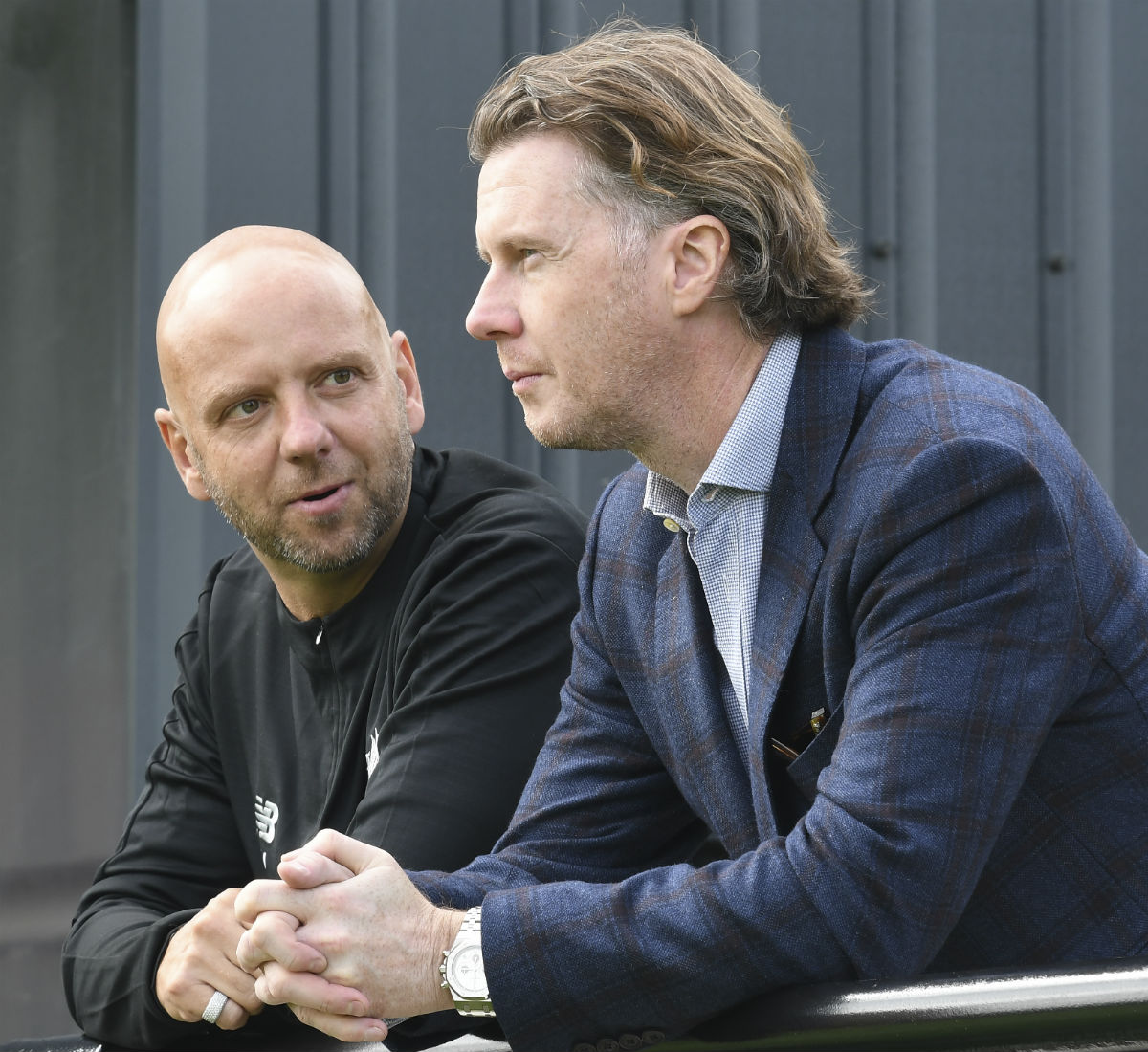
“When I came in for the first six months or so to dip my toe in, I could see the coaches were brilliant and I said to Alex and Critch [Neil Critchley] that the players are listening to what you’re saying and I can’t do that side of it any better.
“I said the coaching is brilliant so if I can help in another way - be in the background and step in when I’m needed and with the experiences I’ve had through my footballing career - I’m happy to do that.”
Jones works with the Reds’ U23, U19 and U18 groups three or four times a week, while also attending as many of their games as possible.
Day-to-day, the 48-year-old will observe training and is afforded free rein to speak with players one-on-one before or after sessions, with Inglethorpe and the coaches also handing him specific assignments as and when they see fit.
“When there’s a player they want to work on, usually a defender or something, they will say ‘could you maybe pull them aside or do a bit of extra training with them?’ so I just step in whenever I’m needed,” Jones says.
It’s a similar story on matchdays.
“I don’t speak to the players as a group at games, but individually. The reason I suppose for that is because before a game or at half-time there can be four or five coaches in the changing room. Once every coach has said a few words it’s time to go out.
“So for me, I’ll go over to Neco [Williams], for example, at half-time and say he’s playing well or he needs to improve on something, that type of thing. It’s more individual for me.”
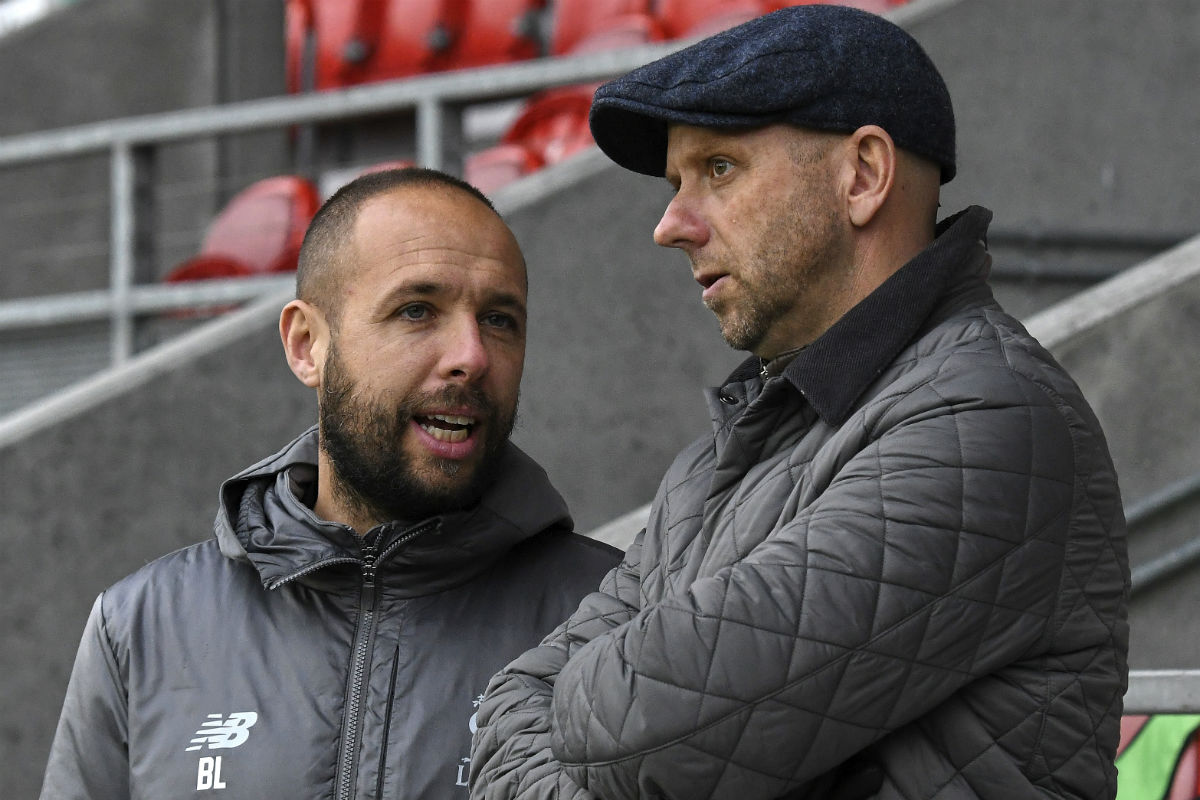
There is more to it than that, though: a point emphasised as Jones elaborates on his earlier citation of a ‘holistic approach’.
“I have a role to support the players as they deal with issues of being dropped, being injured, being rehabilitated, being away from their families, being sent on loan and being released and it’s key that their welfare is protected along the way,” he details.
“They’re young lads and they haven’t got the skill set to deal with those setbacks. My experience of having been at the top of my game, being injured, recuperated and released gives me the knowhow on what stages they will face in their journey and career.
“Kids nowadays have huge pressure on them and when their dreams can be side-tracked through an injury, a bad game or a disagreement, I need to know the signs and step in before it becomes a problem. Each player is an individual and to help them you need to know what makes them tick.
“The players know I’m here for them and I think the fact I’m interested in helping them is why they trust me, because I’ll say it how it is and try to help them.
“Also, the young lads who are out on loan, it’s my job to stay in touch with them because it’s difficult for the coaches here to be ringing them every five minutes and keeping in touch. It’s just about reassuring them and being that friend to them.
“My role is to support the coaches too, and if a player doesn’t understand why they are being treated or criticised in a certain way for their own good, I step in and level with them from my own experience and help them see the bigger picture.
“Egos can ruin careers. The coaches have a job to do and I help players see that criticism is constructive. Even if they can’t see it at that particular moment, they need to learn and accept it.”
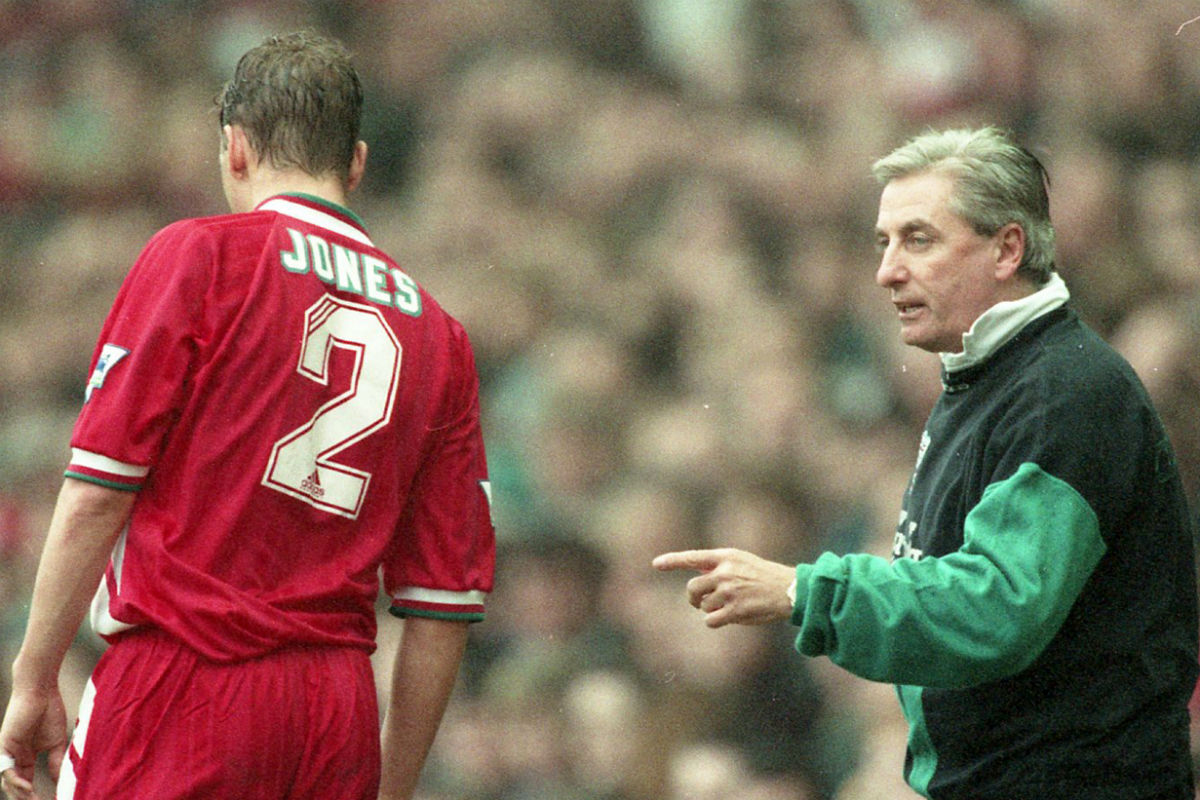
The fact Jones’ own career was curtailed by injury makes him an ideal sounding board for youngsters struggling with their own fitness issues.
“That’s actually probably the perfect role for me, when the lads have big injuries or they’re injured all the time, because I can relate to it,” he explains.
“I know what it’s like to be running around the pitch on your own month after month after month, and I’m there to put my arm around them and have a little chat with them to say: ‘I’ve been there and there is light at the end of the tunnel.’
“Sometimes when they’re injured I’ll go and sit on the bike next to them and just have that conversation because it’s a lonely place, being injured. You’re with the same physio all the time and it’s difficult.
“I’ve been there, I know what it’s like. All you want to do is to get back on that pitch training.”
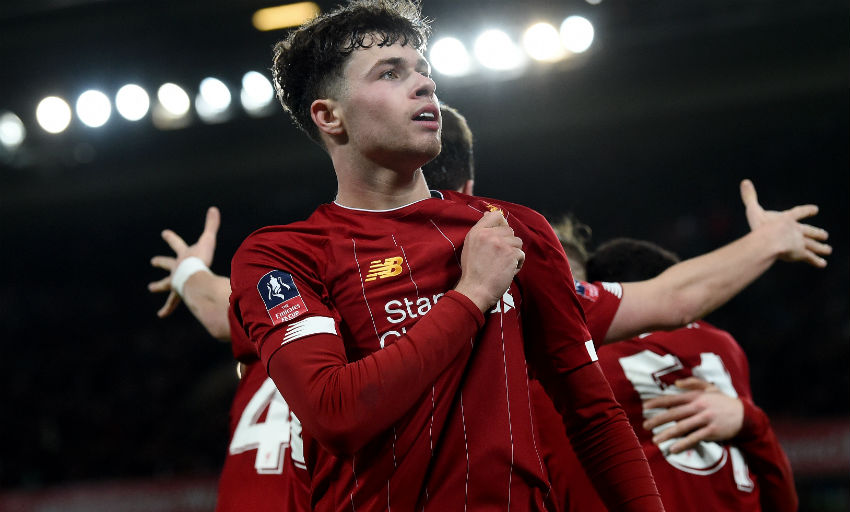
The aforementioned Williams is a player Jones is particularly close to.
Liverpool full-backs past and present, both hail from Wrexham and Jones has witnessed - and helped shape - Williams’ ongoing development into a footballer who, at the age of 18, has made five first-team appearances this season.
“I knew him as a 13 or 14-year-old because my son used to play in the same team as him, so I’ve seen him come up,” Jones states.
“He’s always had the talent but this season he’s come on so much - his confidence, his skill, his defending - so I don’t need to say too much to him!
“When he was making his debut and in the game after, I remember texting him saying I wasn’t worried about him. I wasn’t nervous about Neco because I know what he can do and I know that the big game wouldn’t faze him, and it didn’t.
“He slotted in there like he’d played 100 Liverpool games, for me. He’s got that character. Some players can go into their shell but I was not worried about Neco at all.
“I’ve said to him ‘You’ll need me more when things start to go bad’, but at the moment, when you’re playing that good, you’re flying high and playing in the first team and coming back to the Academy, I tend to leave him and the other lads like that alone because they don’t need anything else.
“They’re probably getting little bits from everywhere so I’ll leave them to their own devices until you see a dip, which everybody has, then maybe I’ll put an arm around them or help them more then.”
Of course, the Reds’ current senior right-back is also a product of the Academy - with Jones describing how the process of converting a certain Trent Alexander-Arnold from youth-team midfielder to the player he now considers the world’s finest in his position began.
“I can remember the first game we put him there, I think it was against Manchester City at Anfield, and the poor lad had never played that position and, to be honest, he didn’t have the best of games,” he recollects.
“I think people think that you can go from midfield to right-back and because you’re a brilliant midfielder you’ll just step in, and that’s not the case.
“But all credit to him over the months that came after and to the coaches here, everyone worked with him to specifically be in that right-back spot and now he’s the best in the world, isn’t he? I can’t think of anyone better at going forward. He’s worked on his defending and it’s all credit to him and all the coaches that he’s done so well.
“I offered advice to him here but once he moved to right-back and did well, he was off! He’d gone to Melwood and then you don’t see them.
“I keep in touch with him and wish him well and stuff, but once they’ve moved up then I move on to try to bring the next one up because we don’t just want one Trent, we want five!
“It’s not always going to work like that, but that’s got to be the aim. Neco is possibly the next one and Ki-Jana [Hoever] as well, so the full-back spot at the moment through the Academy is looking strong.”
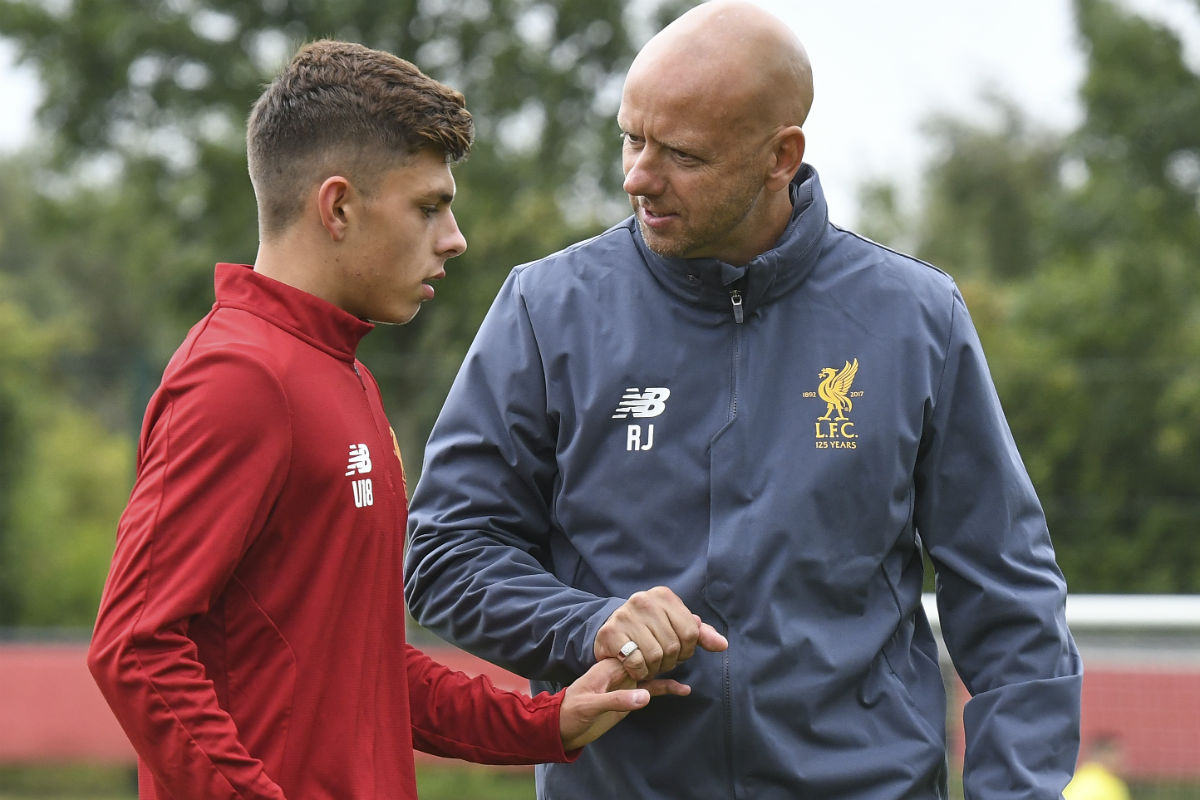
On a micro, day-to-day level, seeing a player execute something he has discussed with them during a game provides Jones with job satisfaction.
“That type of thing, definitely,” he notes.
“If I pull a single player at half-time and mention the things that he’s doing wrong or could improve in the second half and then see him go out and do what I’ve asked him to do, it’s great. If it works then when they’re coming off the pitch I’ll go over, put my arm around them and have a laugh with them.
“They appreciate it and they listen. They realise that we are all here for them: I’m personally not here for me, I’m here for them and the club. I love the club, I supported them as a kid so it’s great to be back. But I’m not here for me, I’m here for them.”
The bigger picture? Pleasure there is drawn from playing a part in the achievement of the Academy’s primary objective.
“It’s about seeing any of the Academy lads move up and play for the first team. That is it.
“You know, winning the Youth Cup last year was brilliant for the Academy as well and it’s looking stronger and stronger.
“If you go back the next couple of years you can see there’s another small group coming up and I think it’s nice for the fans to know that, that there’s more coming through, and as long as they keep progressing like we think they are then in three or four years’ time you’re going to get another batch coming through.”
A question about how Jones looks back on his own playing career also leads to further insight regarding his current role, as well as the responsibilities and pride he takes from it.
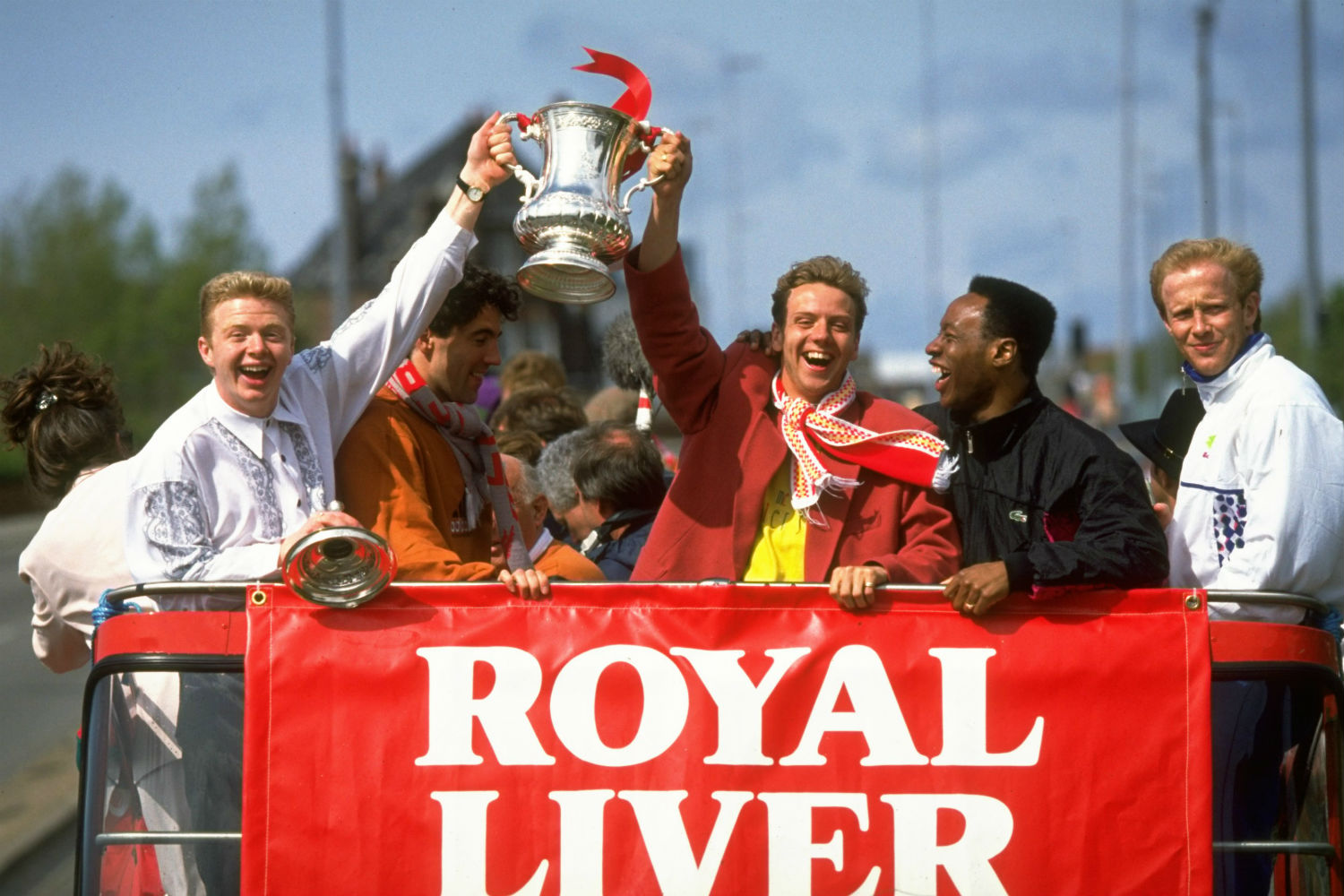
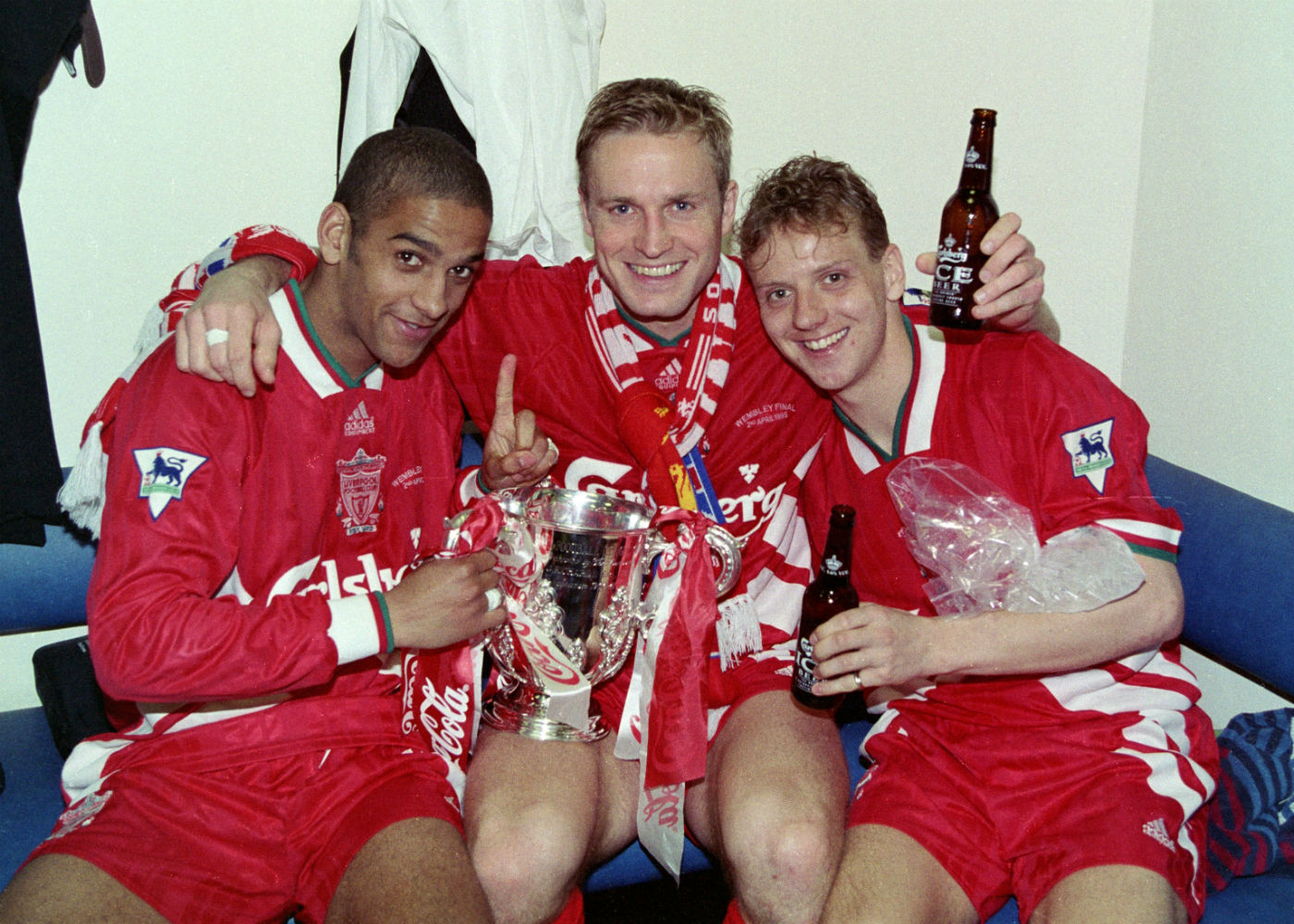
“I loved my days as a player,” Jones, whose grandfather Bill made 277 appearances for Liverpool in the 1940s and ’50s, begins. “Joining the club that I supported was just a dream come true, which I’ve said before.
“I know people talk about injuries and I did have some serious injuries, but when I look back I still played hundreds of games and when you look at other players who have stayed fit they haven’t played half as much as that, so I feel like it was alright!
“Obviously I wish I would have carried on playing here for the rest of my life, but that’s not always the case and I think that’s part of football. In my role here I can step in and tell the lads that, even players who have been at the club for years and then leave: it’s not the end of the world.
“Sometimes they might not make the Liverpool grade but they can go down to a lower division and make a great living and be a good footballer. Obviously to play for Liverpool’s first team is the top, you’ve got to be the best of the best, but if you do leave Liverpool at 18, 19, 20, 21 or whatever, it’s not the end of the world.
“There’s plenty of other clubs out there and to get that across to them when they leave is important because you can see when their contracts aren’t renewed, they’re gutted. It’s about saying to them ‘Move to that club, it’s a fresh start, that’s life’ and it’s great to see lads go to other teams and make a living out of the game. I’m proud of them as well.
“It’s a different level isn’t it? We only talk about the lads who make it here, but there’s the other side of it, where the lads haven’t quite made it at Liverpool but make a fresh start at other clubs around the country.”
Still an avid Liverpool supporter - “The football is amazing and to go to Anfield even as an ex-player to watch, the excitement and buzz I still get - it’s amazing,” is his assessment of the remarkable continuing feats of Jürgen Klopp’s team - Jones is a busy, and happy, man.
“The business we run is credit to my wife, really. She’s sort of the backbone of it and started it up. I’m just kind of like a mentor there as well and I help in any way I can!” he concludes.
“It’s going really well and it’s nice to have two separate jobs. I can be with the nursery and be in some tense meetings for a couple of days, but to get this [Jones points to the badge on his LFC training top] on and get out of the office and come here is brilliant.
“At the moment my life is perfect.”
Read more from our Behind the Badge series...


